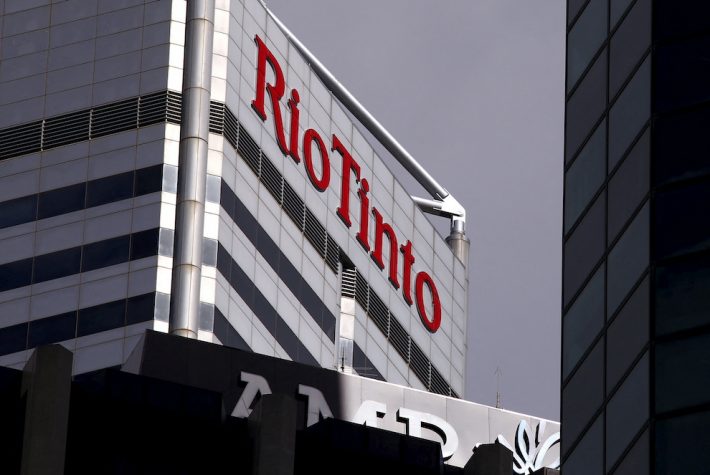Australian-based mining giant Rio Tinto released an internal report Tuesday that found sexual harassment, bullying and racial discrimination are rife “throughout the company”, with 21 women denouncing actual or attempted rape or sexual assault.
Management ordered the investigation after a string of complaints and scandals, including the blowing-up of an ancient Aboriginal site in Western Australia to expand an iron ore mine.
The 85-page report – based on information from 10,000 employees gleaned over eight months – described bullying as “systemic” and racism as “common”, while stating that sexual harassment occurs “at unacceptable rates”.
It describes a toxic, white- and male-dominated work culture in which female employees were asked to perform oral sex, catcalled and forced to keep a list of male colleagues to avoid at night.
Rio’s operations span mines, smelters and refineries often in remote locations, with a significant number of the company’s 45,450 workers living on-site and hired on fly-in, fly-out contracts.
The report revealed that 28% of female staff had been sexually harassed, with 21 reporting actual or attempted rape or sexual assault in the past five years, according to author Elizabeth Broderick, formerly Australia’s sex discrimination commissioner.
Lack of Consequences
Women spoke of a lack of consequences when they reported incidents of sexual harassment, “and of having to carry the burden of managing the situation themselves, rather than receiving support from management or human resources,” the report said.
One employee said that when she reported to a staff leader that a man had asked her to perform oral sex on him, the leader replied: “I’m sure he was just joking. We’ll make sure you’re not alone with him.”
The report also found that bullying was “systemic”, with almost half of those surveyed experiencing it and women more likely to have faced it.
One respondent said the psychological abuse from a male manager was so bad that she felt unsafe being in a room with him. “I was having anxiety attacks, some of them made me suicidal,” the woman said
She said she discussed it with human resources but did not make a formal complaint.
Widespread Racism
Nearly 40% of men and one third of women who identify as Aboriginal or Torres Strait Islander in Australia experienced racism. “I’ve copped racism in every single corner of this company,” said one respondent.
“I offer my heartfelt apology to every team member, past or present, who has suffered as a result of these behaviours. This is not the kind of company we want to be,” CEO Jakob Stausholm said, describing the report’s findings as “deeply disturbing”.
The report made 26 recommendations, including changes to management oversight and training, and making sure “women and other minority groups are deployed to operational sites as part of a cohort”.
Rio has tried to soften its public image in recent years, announcing plans to halve direct carbon emissions and vowing to overhaul a toxic workplace culture.
The revelation in 2020 that Rio had blown up the 46,000-year-old rock shelters at Juukan Gorge in Western Australia sparked a public backlash and investor revolt that led then CEO Jean-Sebastien Jacques and two top executives to resign.
- AFP, with additional editing by George Russell
READ MORE:
Rio Tinto Begins Underground Mine Work in Mongolia
Rio Tinto For ‘Full Reset’ in Mongolia Mine Row – SMH
BHP Cuts Output Guidance As Rio Delays Key Lithium Mine
























